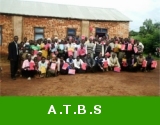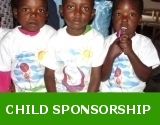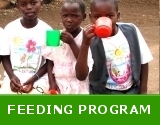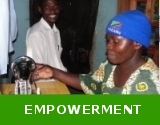Tanzania
Tanzania Representative
House of Prayer and Freedom church
A.T.B.S
Tanzania Ministry
United Caribbean
Tanzania KIMI Co-ordinators
Tanzania KIMI Teachers
A.B.C.D
| |
home >>africa
appeal >>tanzania >>aids
education
Tanzania
-AIDS education
Permission to use information from www.medscape.com
Tanzania is one of the countries most severely affected
by the HIV/AIDS epidemic. A number of local AIDS education efforts
have been launched over the past decade, several of which have yielded
measurable, positive outcomes. Despite these successes, many barriers
to effective dissemination of AIDS information exist, and large
population groups still lack basic information on how to protect
themselves from infection. Although effective school-based AIDS
education programs are available, these have yet to be implemented
consistently and persistently throughout the public school system,
where the majority of adolescents can be reached.
Sourced from www.medscape.com
 |
UCT seeks to teach the children the steps
to being the most powerful human on earth! |
 |
1. RESPECT yourself!
2. CHOOSE TO WAIT... You're
so worth it!
3. MAKE POSITIVE CHOICES! |
 |
Sport form part of an innovative
new approach towards youth and HIV prevention. Former Director
General of the World Health Organization, Dr. Gro Harlem Brundtland
describes it in the following terms...
|
“Out of Africa comes a new method of using sport
to unite children and youth to form an alliance against the ravages
of HIV/AIDS. Infected or not, young people can find strength and information
in games and the joy of sports.”
Permission requested to use information from www.uniteforchildren.org
10 basic facts on HIV and
AIDS
It is your right to
know...
- AIDS is caused by HIV.
AIDS is caused by HIV, the human immunodeficiency virus, which
damages the body's defense system. People who have AIDS become
weaker because their bodies lose the ability to fight all illnesses.
They eventually die. There is no cure for HIV.
- The onset of AIDS can take up to ten
years.
The onset of AIDS can take up to ten years from the time of infection
with the HIV virus. Therefore a person infected with HIV may look
and feel healthy for many years, but he or she can still transmit
the virus to someone else. New medicines can help a person stay
healthier for longer periods of time, but the person will still
have HIV and be able to transmit HIV.
- HIV is transmitted through HIV-infected
bodily fluids.
HIV is transmitted through the exchange of any HIV-infected bodily
fluids. Transfer may occur during all stages of the infection/disease.
The HIV virus is found in the following fluids: blood, semen (and
pre-ejaculated fluid), vaginal secretions, breast milk.
- HIV is most frequently transmitted sexually.
HIV is most frequently transmitted sexually. That is because fluids
mix and the virus can be exchanged, especially where there are
tears in vaginal or anal tissue, wounds or other sexually-transmitted
infections (STIs). Girls are especially vulnerable to HIV infection
because their vaginal membranes are thinner and more susceptible
to infection than those of mature women.
- People who have Sexually Transmitted
Infections (STIs) are at greater risk of being infected with HIV.
People who have STIs are at greater risk of being infected with
HIV and of transmitting their infection to others. People with
STIs should seek prompt treatment and avoid sexual intercourse
or practice safer sex (non-penetrative sex or sex using a condom),
and inform their partners.
- The risk of sexual transmission of HIV
can be reduced.
The risk of sexual transmission of HIV can be reduced if people
do not have sex, if uninfected partners have sex only with each
other or if people have safer sex -- sex without penetration or
using a condom. The only way to be completely sure to prevent
the sexual transmission of HIV is by abstaining from all sexual
contact.
- People who inject themselves with drugs
are at high risk of becoming infected with HIV.
HIV can also be transmitted when the skin is cut or pierced using
an unsterilized needle, syringe, razorblade, knife or any other
tool. People who inject themselves with drugs or have sex with
drug users are at high risk of becoming infected with HIV. Moreover,
drug use alters people's judgment and can lead to risky sexual
behaviour, such as not using condoms.
- Contact a health worker or an HIV/AIDS
centre to receive counselling and testing.
Anyone who suspects that he or she might have been infected with
HIV should contact a health worker or an HIV/AIDS centre in order
to receive confidential counselling and testing. It is your right.
(Article 24 of the Convention on the rights of the child).
- HIV is not transmitted by everyday contact.
HIV is not transmitted by: hugging, shaking hands; casual, everyday
contact; using swimming pools, toilet seats; sharing bed linens,
eating utensils, food; mosquito and other insect bites; coughing,
sneezing.
- Everyone deserves compassion and support.
Discriminating against people who are infected with HIV or anyone
thought to be at risk of infection violates individual human rights
and endangers public health. Everyone infected with and affected
by HIV and AIDS deserves compassion and support. (Article 2 of
the Convention on the rights of the child).
Sourced from www.uniteforchildren.org
|
|









